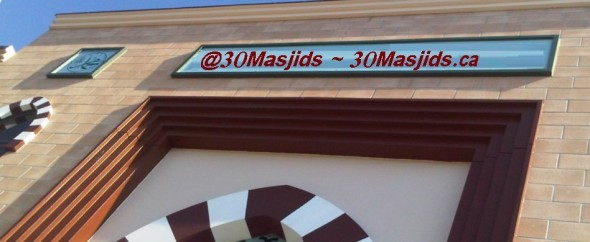Category:
Share it:
30 Masjids — Returns for Ramadan 2012
Comments Off on 30 Masjids — Returns for Ramadan 2012
Category:
Tagged with:
Share it:
30 Masjids 2012
Comments Off on 30 Masjids 2012
[blackbirdpie url=”https://twitter.com/HibaqG/status/226173691170537473″]
[blackbirdpie url=”https://twitter.com/HiMYSYeD/status/226174806721187840″]
[blackbirdpie url=”https://twitter.com/HibaqG/status/226186272513867777″]
Category:
Share it:
Moonsighting for Ramadan 1433
Comments Off on Moonsighting for Ramadan 1433
[blackbirdpie url=”https://twitter.com/HiMYSYeD/status/225955114521878528″]
[blackbirdpie url=”https://twitter.com/HiMYSYeD/status/226115014543675394″]
Not Seen: HiMY SYeD (MCW member) from Toronto Ontario reported: On Thursday July 19 2012, after praying Maghrib at Masjid Toronto in Downtown Toronto, I quickly walked one block south to Toronto City Hall. Once there I walked up the ramp to the Green Roof of City Hall to get a less obstructed view of the western horizon. It had been overcast for the better part of the day. The evening was no different. The western sky was almost completely still filled with clouds. Nevertheless, I searched the few clear spots in the cloud cover for about ten minutes. No moon was sighted.
[blackbirdpie url=”https://twitter.com/HiMYSYeD/status/226501364145082368″]
Category:
Share it:
Comments Off on 30Mosques.com | VIDEO: ’30 Mosques in 30 Days’ – Dansk Islamisk Center – Copenhagen
Performed by: Aman Ali (New York)
Date: Thursday April 11 2012
Venue: Danish Islamic Center, Copenhagen
Category:
Share it:
Comments Off on 30Mosques.com | VIDEO: Lecture Series: Stereotyping Muslims, Myths and the Media – The Tech Museum – San Jose, California
Sunday, November 13, 2011 – 2:00 p.m.
Panel discussion with Dr. Reza Aslan, Wajahat Ali, Aman Ali and Bassam Tariq, moderated by Angie Coiro
Dr. Reza Aslan, internationally acclaimed writer, multi-media entrepreneur and co-founder of BoomGen Studios, joins playwright, lawyer and humorist, Wajahat Ali, and authors of 30 Mosques in 30 Days, Aman Ali and Bassam Tariq’s, for our panel discussion.
Dr. Reza Aslan is Co-founder and Chief Creative Officer of BoomGen Studios, the premier entertainment brand for creative content from and about the Greater Middle East and President of AppOvation Labs, a mobile applications company.
Born in Iran, he lives in Los Angeles with his wife (author and entrepreneur Jessica Jackley) where he is Associate Professor of Creative Writing at the University of California, Riverside.
Dr. Reza Aslan, an internationally acclaimed writer and scholar of religions, is the founder of AslanMedia.com, an online journal for news and entertainment about the Middle East and the world.
Reza Aslan has degrees in Religions from Santa Clara University, Harvard University, and the University of California, Santa Barbara, as well as a Master of Fine Arts from the University of Iowa, where he was named the Truman Capote Fellow in Fiction.
He is a member of the Council on Foreign Relations, the Los Angeles Institute for the Humanities, and the Pacific Council on International Policy.
He serves on the board of directors of the Ploughshares Fund, which gives grants for peace and security issues; Abraham’s Vision, an educational, conflict transformation organization for Israeli and Palestinian youths; PEN USA, which champions the rights of writers under siege around the world; and the Levantine Cultural Center, which builds bridges between Americans and the Arab/Muslim world through the arts.
Wajahat Ali, local playwright, lawyer and humorist is joined by Aman Ali and Bassam Tariq’s, authors of 30 Mosques in 30 Days.
Wajahat Ali’s play, “The Domestic Crusaders” is one of the first major plays about the American Muslim experience premiering at the the Berkeley Repertory Theater to universal acclaim in 2005 and in New York on 9-11-09.
Honored both as an “An Influential Muslim American Artist” by the State Department and as a “Muslim Leader of Tomorrow”, Ali also received the prestigious “Emerging Muslim American Artist” award.
He is a frequent contributor to the Washington Post, Wall Street Journal, and other publications.
His first short story, “Ramadan Blues,” was published in January 2009 and his first movie, “Ms. Judgments,” was a finalist for the LinkTV Muslim American Film Contest.
His blog, “Goatmilk: An Intellectual Playground” (goatmilk.wordpress.com), is ranked in the top 7% of political blogs by blogged.com.
Wajahat practices law in the Bay Area, California.
Aman Ali and Bassam Tariq are the co-creators of 30 Mosques in 30 Days, a Ramadan road trip adventure across the United States.
Using Facebook and Twitter to fundraise over $18,000 for the project, the two have driven over 25,000 miles to every state with the mission of telling authentic stories about Muslims in America on their site, www.30mosques.com.
During the trip they have prayed inside the infamous “Ground Zero Mosque” hung out with Muslims in Alaska and Hawaii and visited the first mosque ever built in the U.S. in Ross, North Dakota – a town with only 48 people.
They have told the stories of several refugees who fled their homes in Africa, Asia and Europe to settle in the U.S., a Singaporean woman who traveled across the globe to marry an incarcerated prison convict in South Dakota, a Native American Muslim who grew up on a Sioux reservation among others.
Their eye-opening journey explores what it means to be Muslim in America today, and serves as a powerful counter-narrative to the media’s image of a monolithic Islam, receiving coverage on ABC News, CNN, BBC, Time, PBS, NPR, Fox News, the Huffington Post and Aljazeera English.
About The Tech Museum
The Tech Museum is a hands-on technology and science museum for people of all ages and backgrounds. The museum-located in the Capital of Silicon Valley – is a non-profit learning resource established to engage people in exploring and experiencing technologies affecting their lives. Through programs such as The Tech Challenge presented by Cisco, our annual team design competition for youth, and internationally renowned programs such as The Tech Awards presented by Applied Materials, Inc., The Tech Museum celebrates the present and encourages the development of innovative ideas for a more promising future
Category:
Share it:
Comments Off on 30Mosques.com | Epilogue: We Will Meet Again
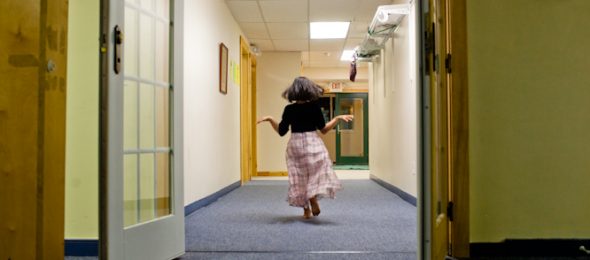
By Bassam Tariq
Dear friends,
It has been a while. We are back living the lives we left. I am in my advertising agency working on what advertising people work on. Aman is touring, flying across the world and writing incredible editorials. Life continues. There was a pause and in that pause we all met. It was only two to three weeks ago that we all were together. You were rooting for us, yelling at us, shaking your head, your fingers – your excitement and energy helped us continue.
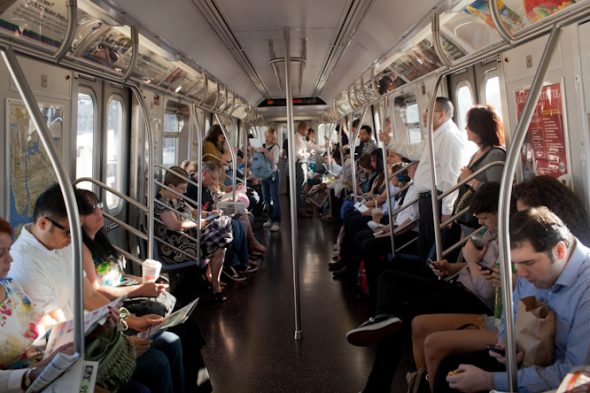

And now I sit in my cubicle wondering if we will speak again. Will we disagree again publicly? Will we continue to challenge each other? Will we try to understand those that are not like us? Does it all stop here?
I take a bus and a train to work sometimes. The morning commute isn’t a long one. I pass by the same homeless men and street vendors on my way into my office. My cubicle has my two mugs ready sitting with my made in Pakistan tea bags. After being gone for a month, everything sat there waiting for me. I brew my tea and I make my way from meetings to meetings.
I eat during the day and sleep during the night.
And as everything fades to normal, will I not wonder what all this has meant?
I have these reoccurring flashes of Lutfullah Wali, the centurion from Nebraska, scribbling profusely on his wall. When I sit in the subway train on my morning commute, I sometimes wish the skyscrapers were replaced by the beautiful mountains of Denali National Park in Alaska or even the expansive cornfields of Indiana.
But as the days pass, the road trip and it’s memories are starting to fade. And it worries me.
The people, their hospitality, their candor, their plight – they cannot be forgotten. The spirit of what we started cannot die. We must remember them. That is how they will live on.
The day of Eid, I drove from Burlington, Vermont to New York City. I made it just in time for the morning prayer of celebration at Masjid Ar Rahman. This is where it all started for Aman and I. This is the place, where two Ramadan’s ago, we were so overwhelmed by the amount of Muslims and its diversity in New York City that we were compelled to visit a new community everyday. I felt like I had to pay my respects here.
It made perfect sense in my mind to drive seven hours all night to make it to a five minute prayer and 20 minute sermon that was inaudible from the back of the prayer space. For the hopes of giving me some kind of clarity. In my mind, it was all worth it.
The following photos were taken during the Eid prayers at the storefront mosque, Masjid Ar Rahman.
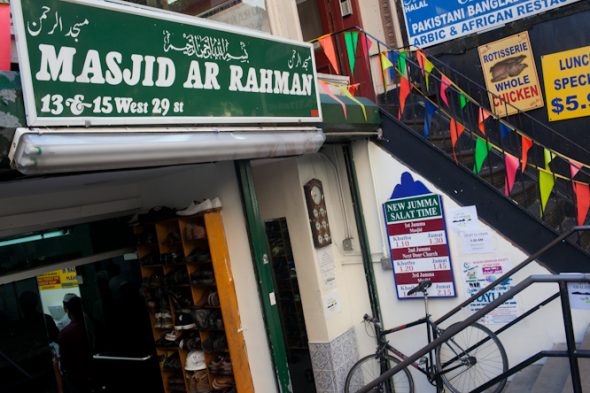
Masjid Ar Rahman is one of the busiest mosques in New York City. During the set prayer times, the roads are blocked by the yellow cabs that have illegally parked to make the prayer.

There is a certain amount that able Muslims must pay in charity before the start of the Eid prayers. It is a gesture of gratefulness.
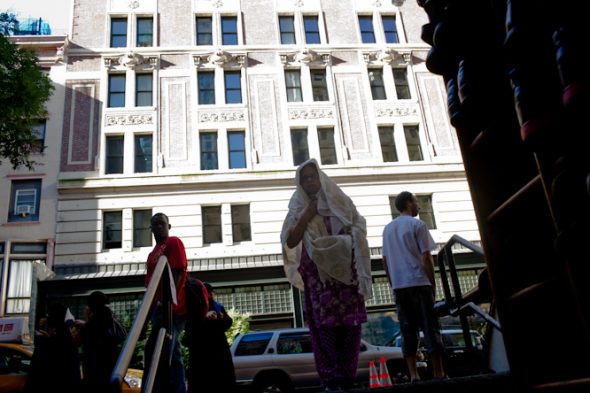
A beggar waits for the congregants to exit the mosque. Outside of many large mosques in NYC there are designated beggars. According to some Imams, they are part of a large network a la Slumdog Millionaire.
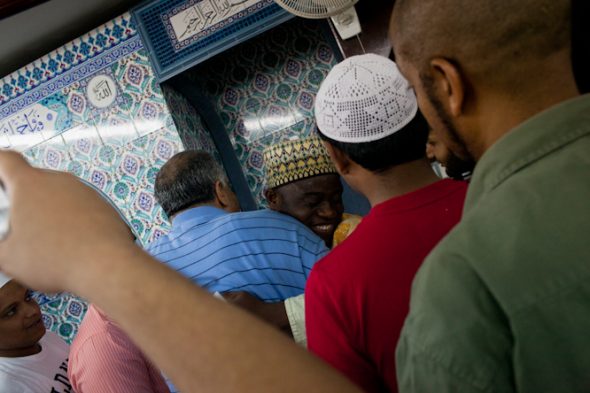
The Imam, spiritual leader, embraces the congregants after the Eid prayer finishes. Since the majority of the congregation commutes, the mosque does not have an appointed Imam.
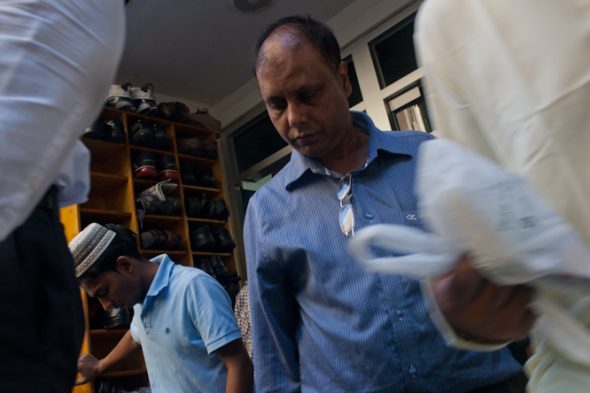
The grand exit.

The shoe mayhem begins.

Though Eid is a religious holiday, many Muslims exited the mosque quickly to get back to work.
***
Later that day, I found myself at a place that challenged everything I knew about Muslims in America. There was a mosque nestled away in the heart of hipster Williamsburg, Brooklyn. Inside of it, a table was set up with cookies and cake. There was a little bit of decoration and the few congregants were waiting. They were waiting for people to come and celebrate Eid with them. And when we finally arrived as uninvited guests, they gave us big hugs and said “happy holidays.”
These few men and women are descendants of Lithuanian/Polish Tatars. Their organization was established in 1907 and at the time they were known as Muhammadans.
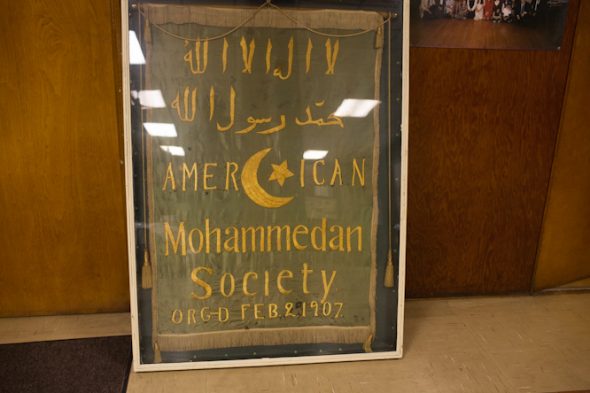
The original placard of the Tatar Muslims.
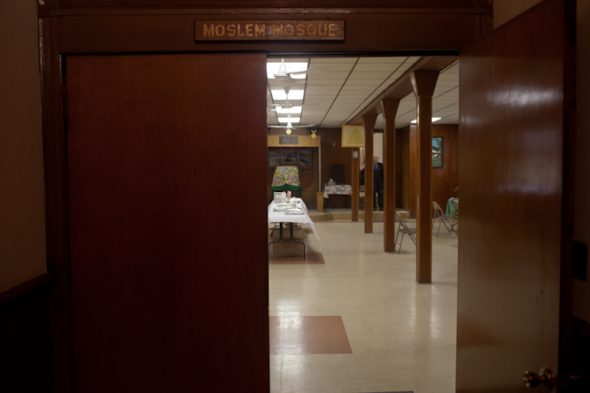
The community was first known as the Muslim Mosque and then later changed it to Moslem Mosque. They have kept it Moslem since 1957.

The untouched table of treats.

Marion, a community member, sits in the kitchen of the Moslem Mosque.
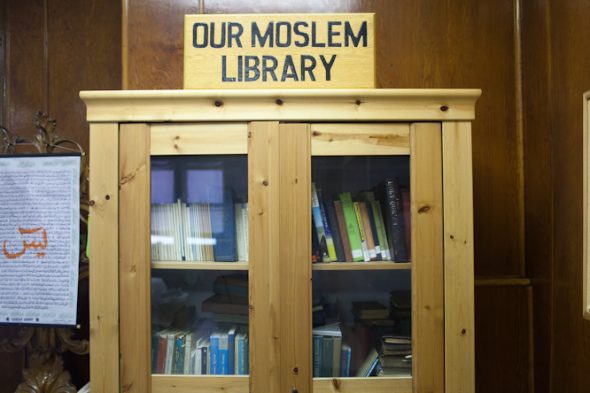
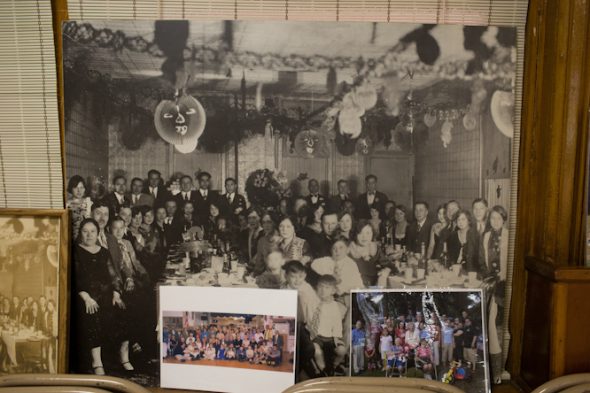
A photo from one of the first family parties of the Tatar Moslems.
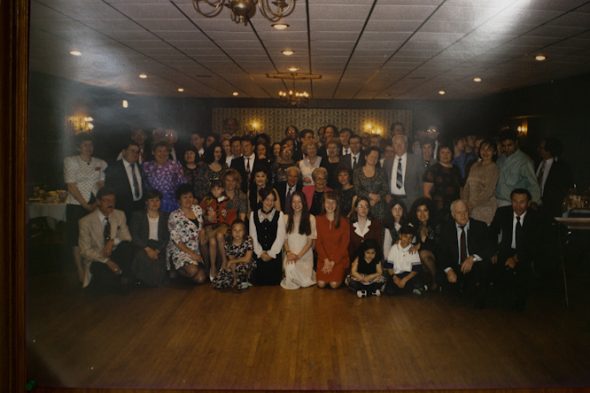
A recent photo of the Tatar families at a banquet dinner.
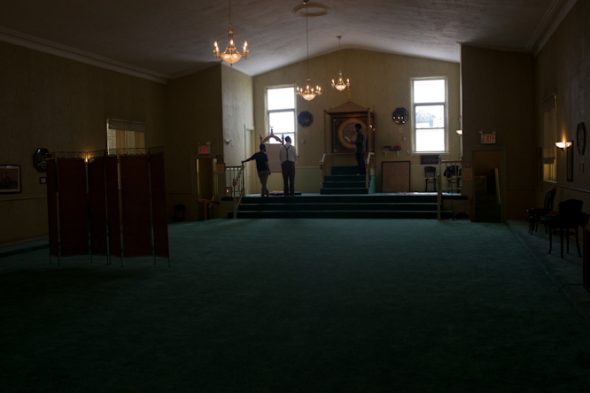
The upstairs prayer space is expansive and bright. The walls are plastered with Turkish artwork from the early 1900s.
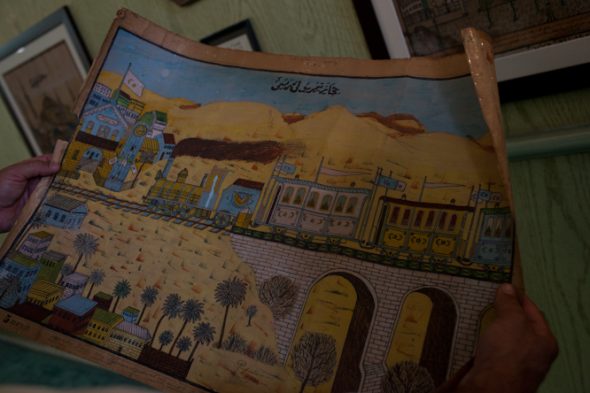
Jack, the vice president of Moslem Mosque, shares an original canvas Turkish painting.

Jack sits in the kitchen with his wife Marion, not pictured.
They are a small community and live amongst one another. They keep amongst themselves and are dwindling in numbers. We were their only guests that day. No one else had come for the celebration.
Yes, I know. There are many questions about who these people are. There must be. I had many of them as well and instead of asking them, I had to leave to catch a flight to Texas.
My afternoon with the Tatars was cut short. I will go back one day to visit the community, but when that day will be? Who knows…
But is the connection for me and this congregation only seasonal? Is it similar in that way to the connection that you and I have? That we will only care to look at one another when we are hungry and bored? Or when there is a plate of food between us?
As true as it might be, I can’t let myself believe that. There is something deeper that has brought us together: the stories. And perhaps that is how we will speak and stay connected. By sharing stories that mean something to us — stories that upset or uplift us. Stories of communities we would have never heard of before or cared to learn about. People that we never stopped to pay attention that we started to take note of. These are the stories that make up our life. They are the ones worth sharing, the ones we live for. Because what else are we without them?
See you soon,
Bassam Tariq
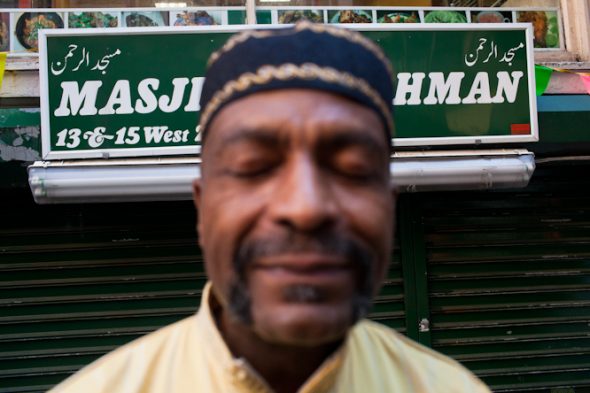
Category:
Tagged with:
Share it:
30Mosques.com | LOOKING BACK
Comments Off on 30Mosques.com | LOOKING BACK
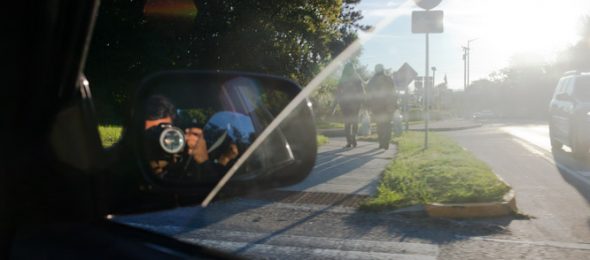
By Bassam Tariq
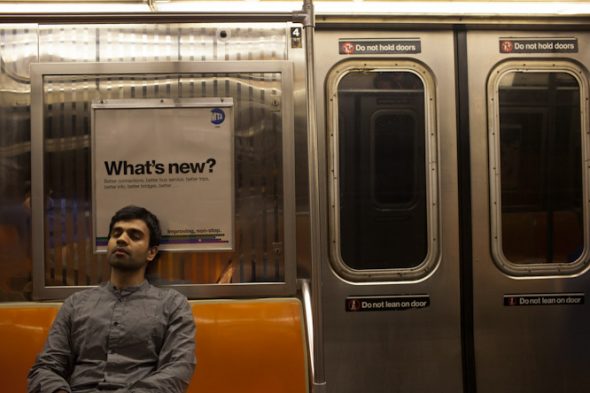
Tired in NYC.
They say that nostalgia is one of the most useless human emotions. What do you get from sulking or waxing about the past? Maybe this isn’t that. Maybe this is just a reflection on some of the moments that can’t seem to leave my mind.
Day 3: Corvallis, Oregon – Letters To Your “Terrorist” Friend.
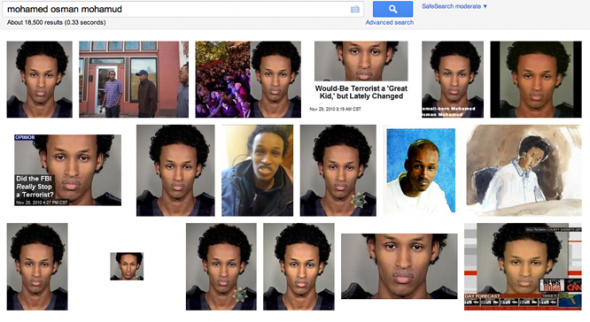
We meet friends of a convicted terrorist and ask them a simple question: If they could say anything to their friend, what would it be? In the beginning, many were nervous about sharing their thoughts, but as they eased into it we were able to get some incredibly thoughtful and emotional responses.
Day 5: Honolulu, Hawaii – Ten Hours Of Shoddy Tourism
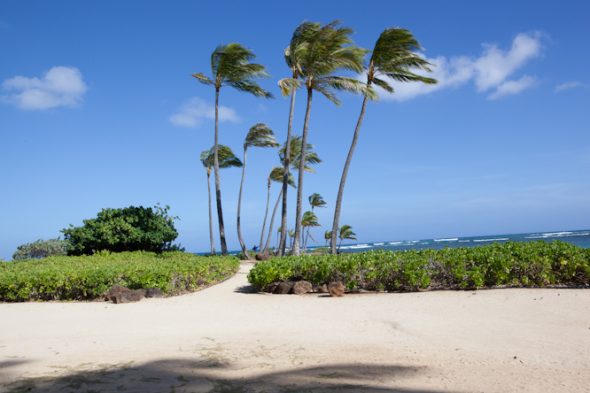
I tried to break down my entire 10 hour Hawaii trip hour-by-hour. It was an ambitious idea. Not sure if people got what I was trying to do.
Day 8: Sioux Falls, South Dakota – Finding Love In Prison
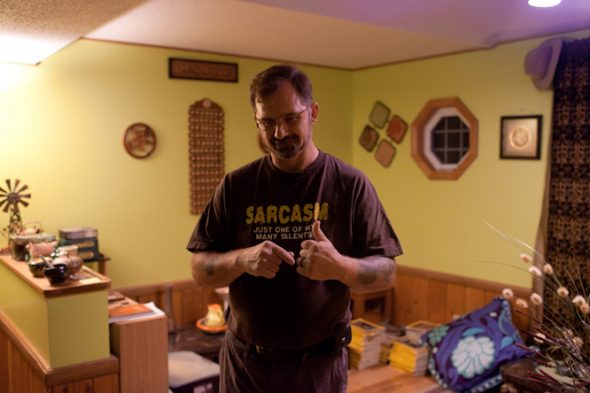
One of the most unforgettable visits on the trip for me is when I met David outside of the mosque. Within five minutes of us meeting one another he started sharing stories about his stay in prison. He then cuts himself off and apologizes for having a big mouth.
“I talk too much.” he admits.
David is human like all of us and isn’t afraid to show it. His story about how he met his wife is one of the most incredible stories that we have ever found during our 30 Mosques trip. A must read.
Day 13: Little Rock, Arkansas – Lessons Learned
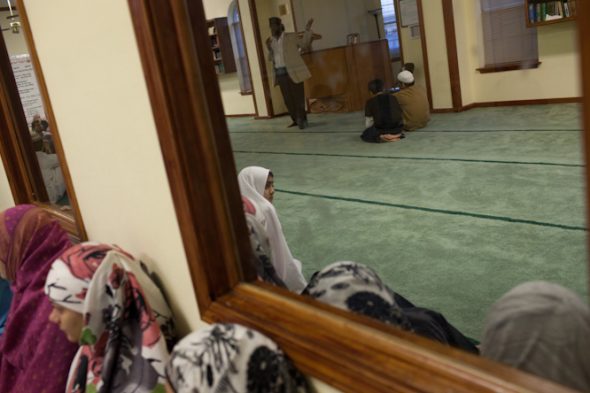
One of the most controversial posts this year came from my experiences in the Women’s side. Many people sadly missed my sarcasm in the writing and thought that I had forced my way into the women’s area. Just to set the record straight for those who still wonder, we had complete permission to go into the women’s side and all the photos have the women have been cleared.
Day 20: Plainfield, Indiana – Understanding the MSA Experience
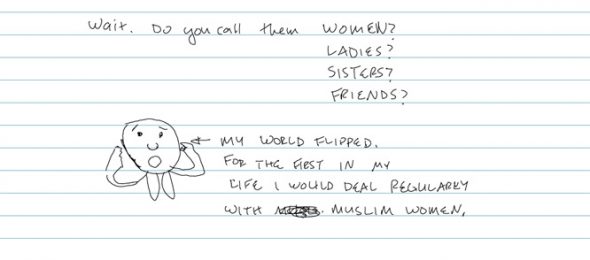
Many Muslims have had very different experiences with the Muslim Students’ Association in their universities and colleges. I thought my experience of being stuck in a bubble was a unique one, but it turns out that many Muslims have also felt the same way.
Day 22: Washington, DC – Visiting A Gay Imam
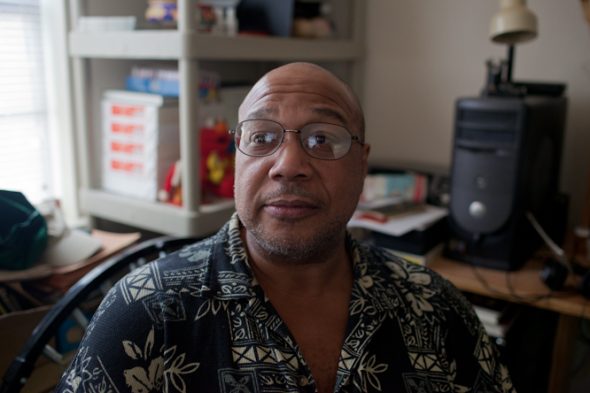
Hands down, the most controversial post that 30 Mosques has ever made. Though we never said we agreed or accepted the Daaiyee Abdullah’s choices, we were thrown under the bus for empathizing with another Muslim. It was sad to see the lack of adab, Islamic values, people had when speaking about homosexuality.
Day 29: The Journey Of Arriving To America
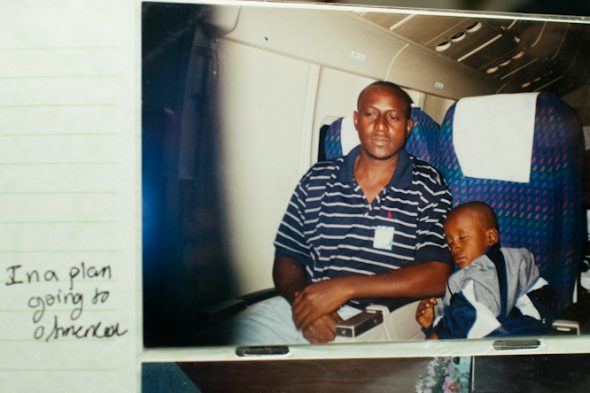
Every time I see the photo of Fawaad and his son on an airplane, I can’t help but get goosebumps. The family is on their way to the US from a war ridden Congo. The mood of the photo is conflicting. There is uncertainty and concern riddled with hope and promise. It was one of the most vulnerable and honest photos I have ever seen.
Category:
Tagged with:
Share it:
30Mosques.com | Live Chat – Round 3!
Comments Off on 30Mosques.com | Live Chat – Round 3!
@DEHausfrau thanks so much. join us tonight for our live chat at 11PM EST if you can at 30mosques.com #30mosques
— Bassam Tariq (@curry_crayola) September 4, 2011
RT @amanali #30Mosques live chat TONIGHT 11 pm EST http://t.co/6VgUi2z! Ensured happening AFTER Curb Your Enthusiasm comes on. #Priorities
— HïMY SYeD 🕌 30 Masjids in 30 Days of Ramadan 2022 (@30masjids) September 4, 2011
By Aman Ali
Third live chat was a blast! If you missed it, no worries, click the “More” button to relive the party

Powered by: CoveritLive
Category:
Tagged with:
Share it:
30Mosques.com | Day 30: Going Home
Comments Off on 30Mosques.com | Day 30: Going Home
By Aman Ali
With everything going on at home, I couldn’t bear being away from my family any longer. So instead of celebrating Eid alone in NYC, I decided to hop on a plane at the last minute and fly out to surprise my family. My Mom’s reaction was priceless.
After Eid prayer, it is customary in my family to hit up as many houses as possible for brunches then ending off the day with our cousins and go bowling in our fancy Eid clothes. I took a bunch of Polaroids to share with you guys these moments that will stay warm in my heart until the next time I’m home again.
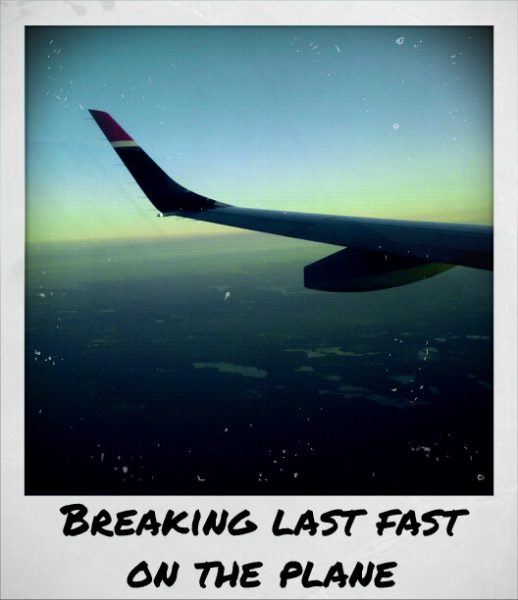
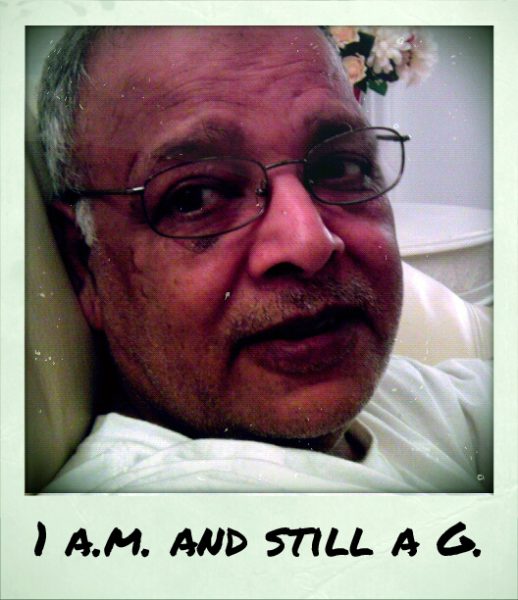

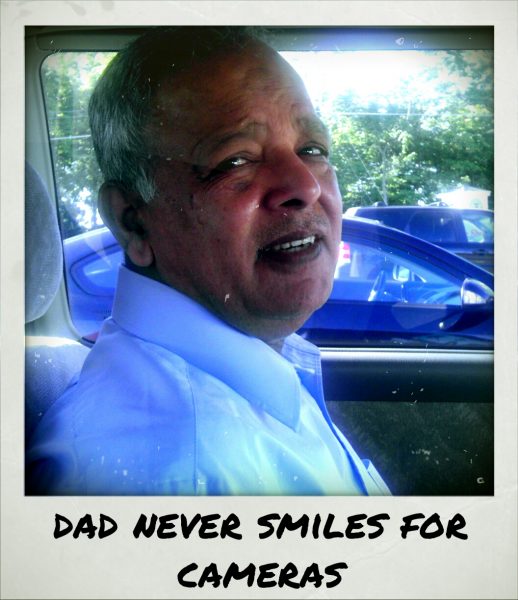
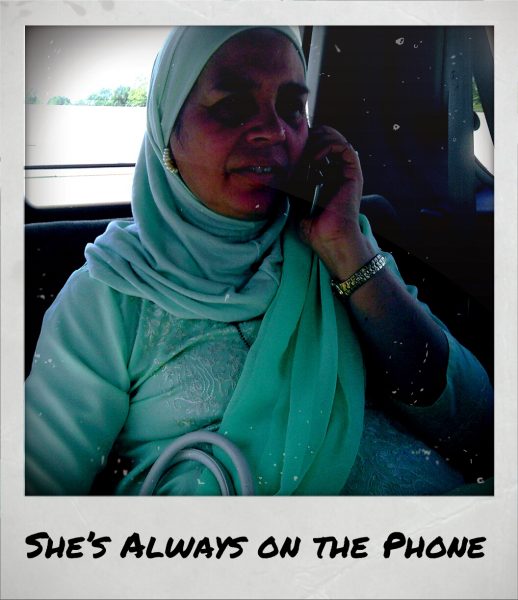
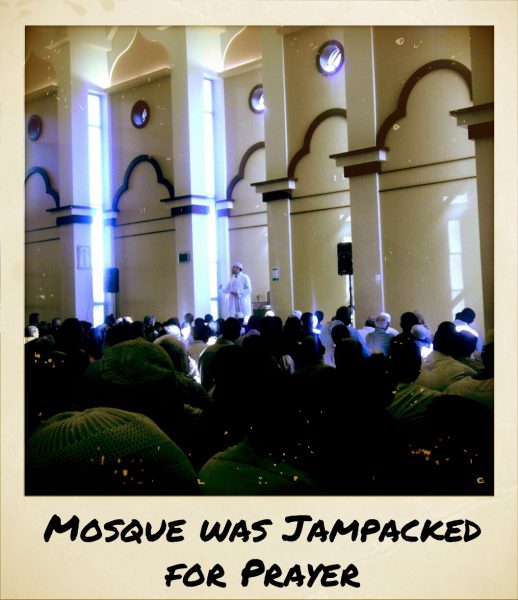
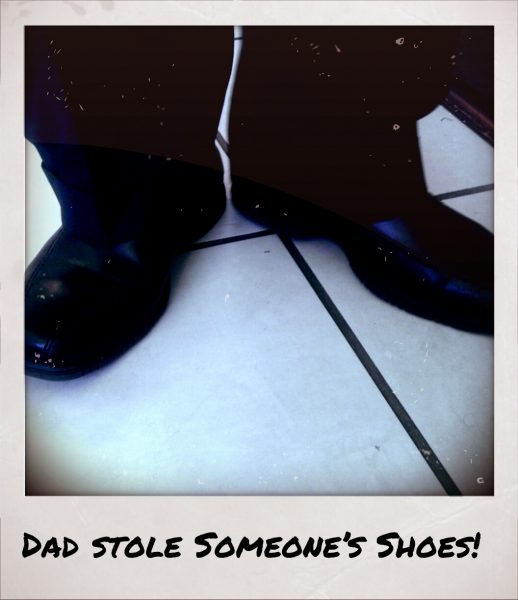
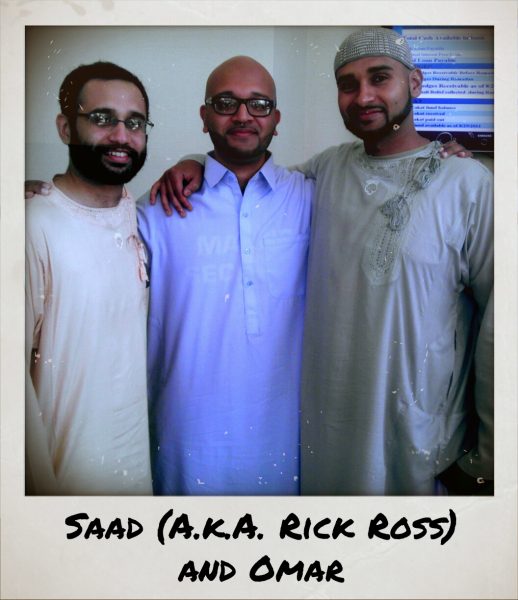
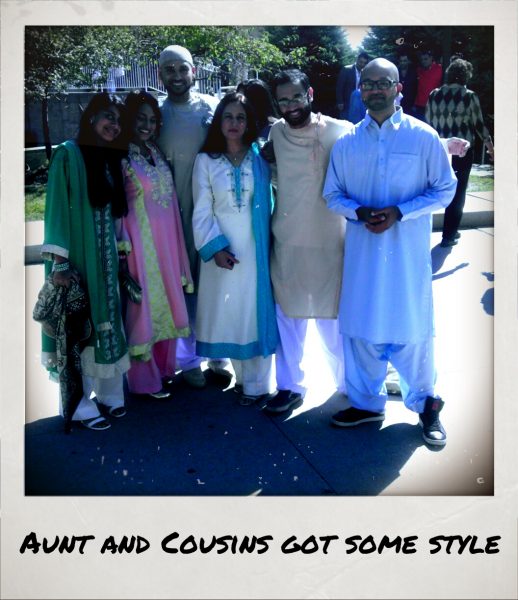
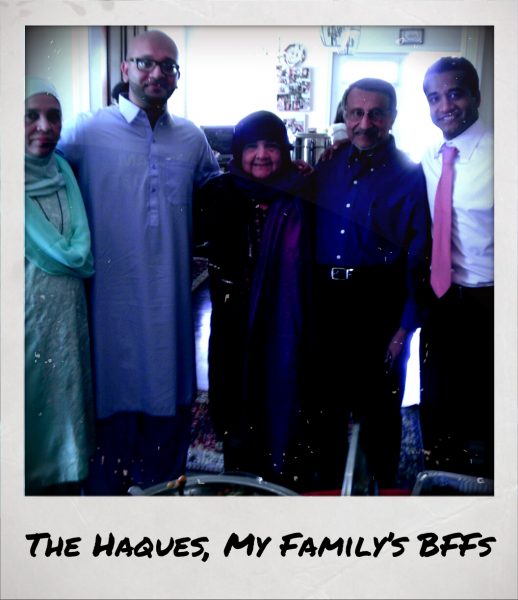
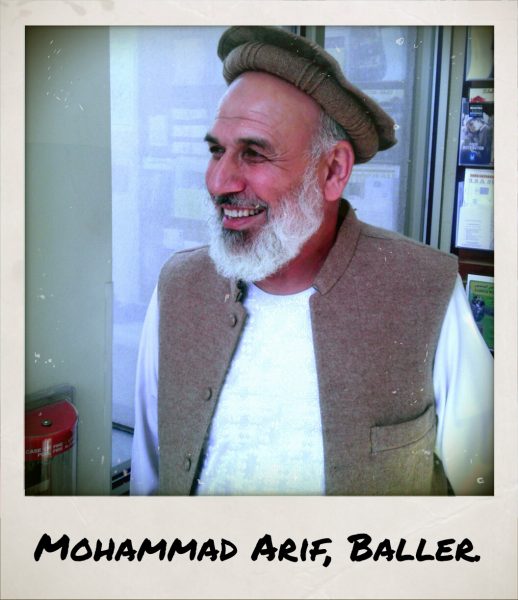
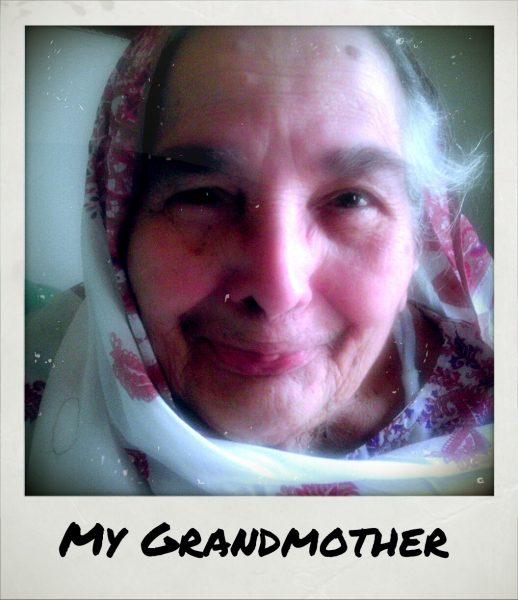
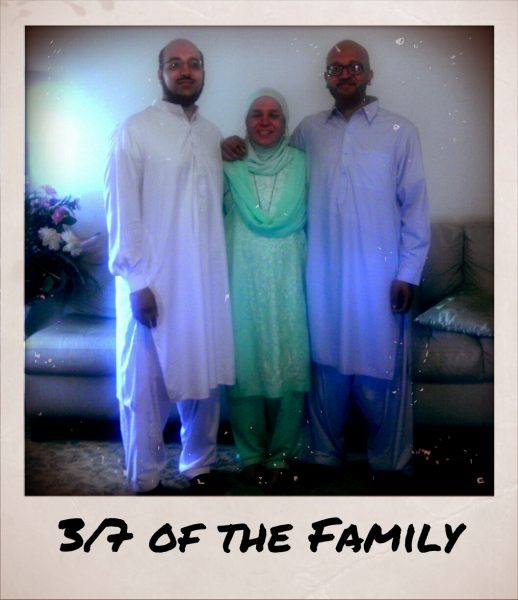
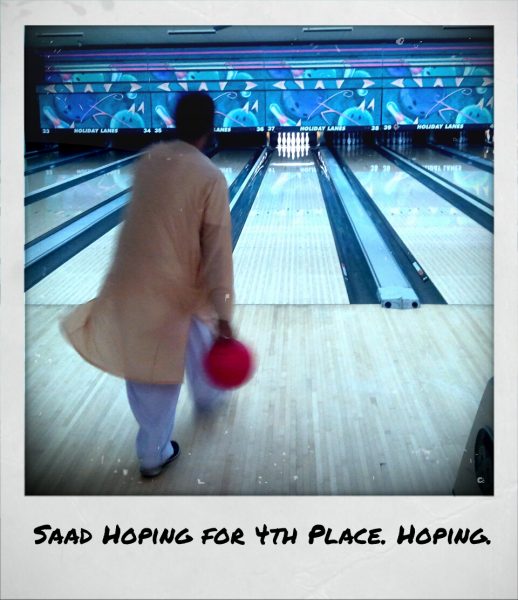
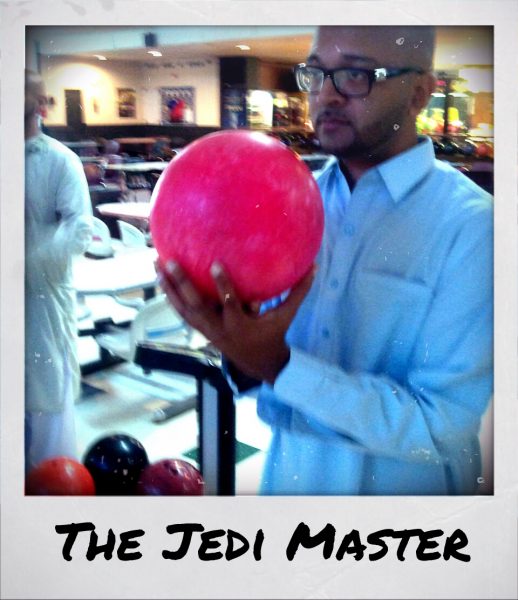
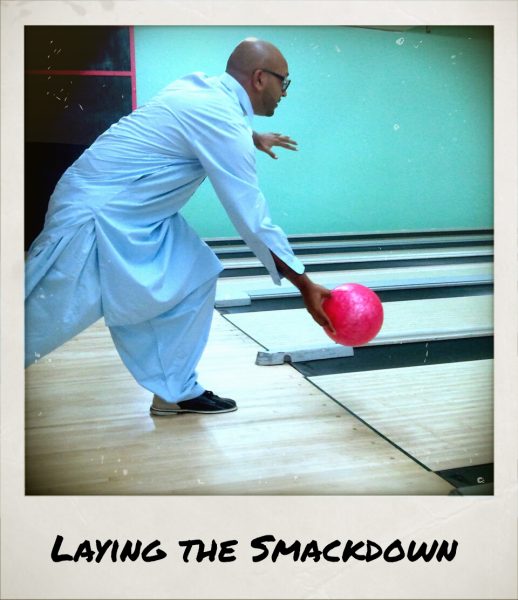
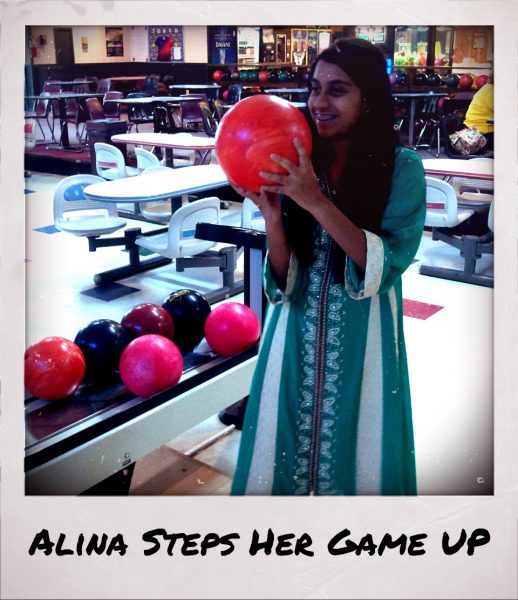
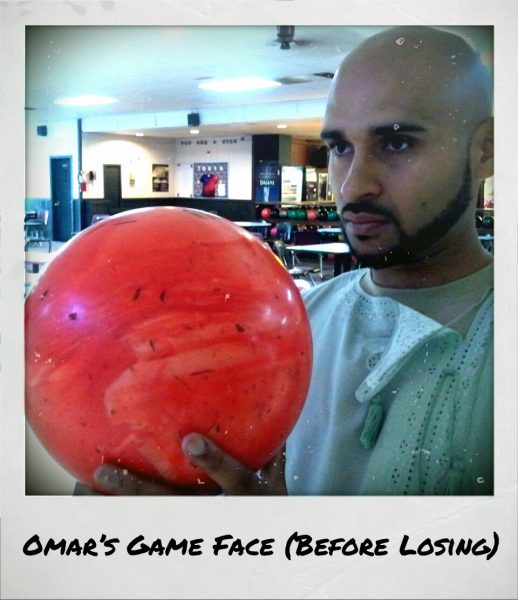
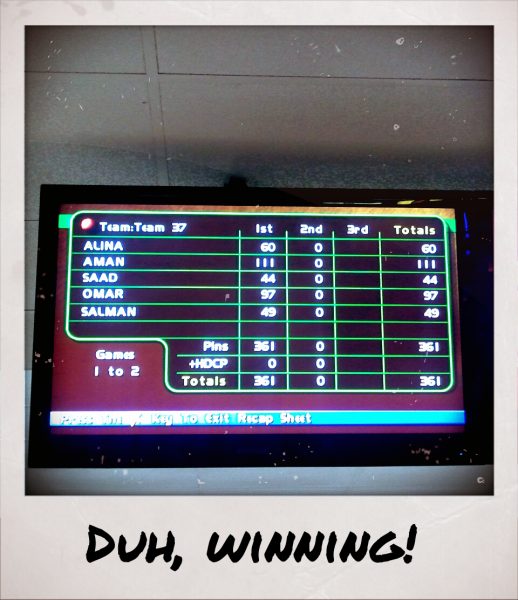
Category:
Share it:
30Mosques.com | Day 29: Up in the Air
Comments Off on 30Mosques.com | Day 29: Up in the Air
By Bassam Tariq

You are on a plane right now. You are fleeing Congo with your wife and two kids, a boy and a girl. Your son is asleep on your shoulder. The airplane drones as airplanes do and you are uncertain about the future.
Fuad. That is your name, but you spell it Fawaad. There is an extra A for emphasis. You are on your way to Burlington, Vermont a part of a refugee resettlement program. You do not know much about geography but do know that it is in America and America means a new and better life for you and your family. And that is all you really know about the coming years.
Fawaad, what if I told you that the first couple of years will be difficult? Since you have no formal education, you will be an electrician. You will have trouble communicating with people in English since your mother tongue is French. In 2003, you will be laid off from your job and without any financial stability.
You will wonder at that moment, why you came to the States: What does it mean to be here? Why can’t I go back? Is all this struggling really worth it? You will not want to be an electrician anymore. You will want to take up a better job that can help you and your family.
That is when you will invite your neighbors over for some samosas. Yes, samosas. They have never had samosas before and you will introduce them to the patty filled with chicken/ beef /spicy potatoes. They will fall in love with them and will throw out a crazy idea about selling samosas in Vermont.
That is when it will click to you – this idea of becoming the “SamosaMan.”
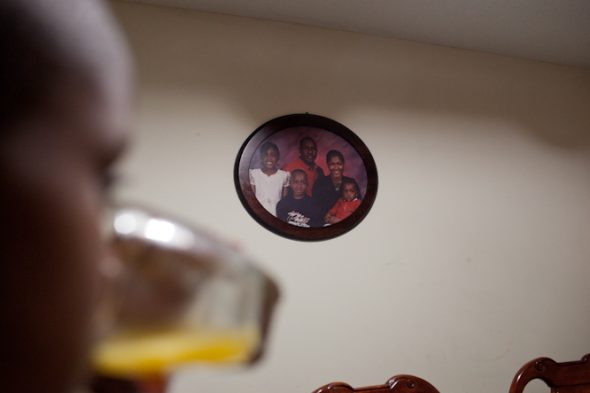
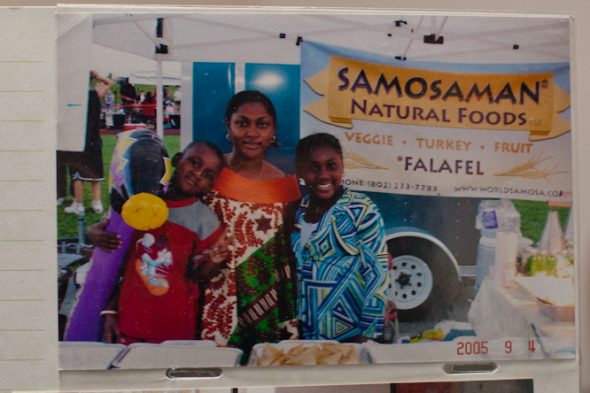
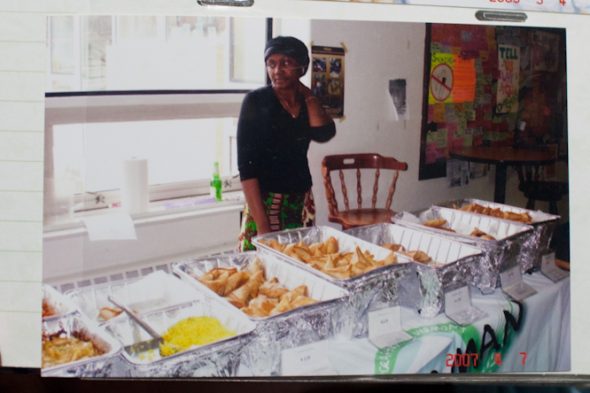
I know, this sounds ludicrous now. But desperate times, call for desperate measures. And you will give your blood and sweat as SamosaMan. You will create a mobile store that pops up at African festivals and carnivals. You will ask local supermarkets if they would be willing to sell your samosas. They will become a runaway hit with the Vermont locals. Articles will get written about your food and suddenly your little family business of selling samosas will carry a life of its own.
Since you are in Vermont, you get the designer who made the Ben and Jerry’s logo to design your logo. And suddenly, you have a company logo and look that is comparable to other larger businesses. A professional and commendable business operation – that uses all-natural organic ingredients.
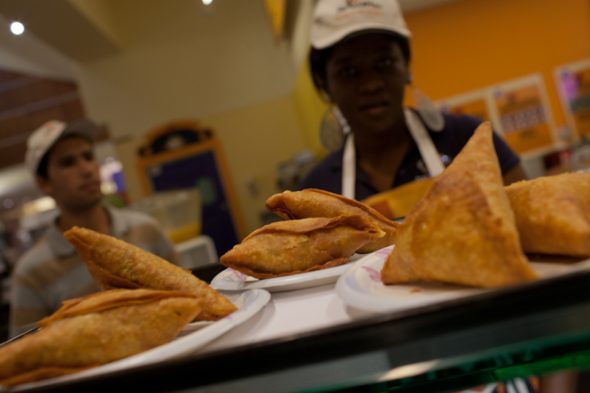
If you ask me, the samosas you will sell are a little pricey at 2.50 but for the quality of ingredients and the oil you use (sunflower seed oil) it is well worth it. They taste amazing.
And when I am at your food court location in Vermont mall of SamosaMan we will meet for the first time.
This will happen about ten years from now. You will be wearing a kufi on your head and a blue polo. I will tell you about my project. I will share how I am traveling across the country, visiting 30 mosques in 30 states in 30 days.
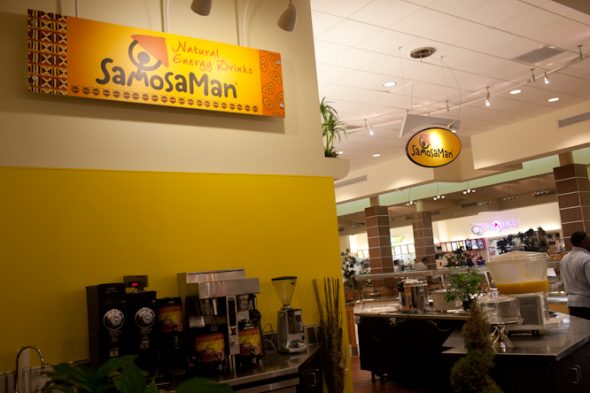
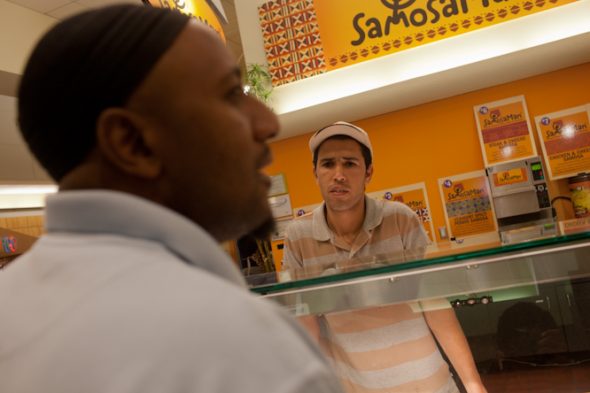
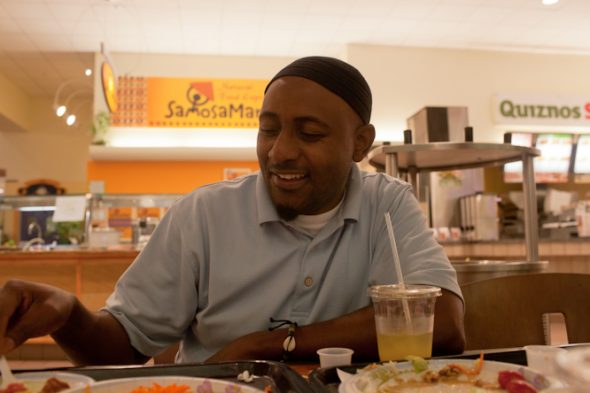
We will sit together, minutes before breaking our fast, reflecting on how the two of us who have lived such different lives have come together to break our last fast in this blessed month.
Your mind will be less on my company and more on the happenings of your family and business. The SamosaMan brand has branched out all over Vermont. It is now available at more than 40 supermarkets in the state. There will also be 40 employees working in your SamosaMan factory churning out at least 1,000 samosas a day.
As we sit together, you will take a bite out of the spicy potato samosa and look around for your wife. She is in the mall today and shopping for eid gifts for the family. Did you know that you also have another child? Now there are three instead of two. When he goes to school, he brags about his dad being SamosaMan. He even brings you to school to show you off.
But your mind is less focused on the fame and attention. It is more focused on running the business, providing for your family, helping the local mosque continue its operation, but don’t worry about these things. Let’s not get too ahead of ourselves. For now, hold your son close to you, let the droning of the airplane calm you and enjoy the ride.
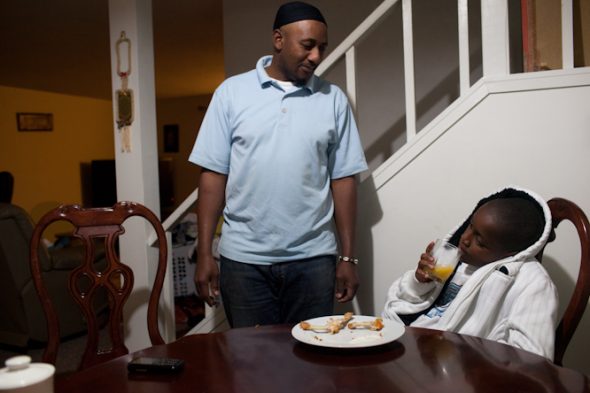
Category:
Share it:
Comments Off on 30Mosques.com | Day 28: Making Adjustments
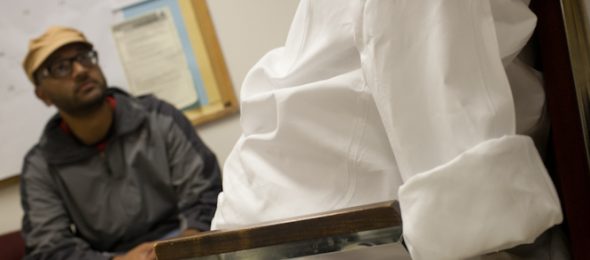
By Aman Ali
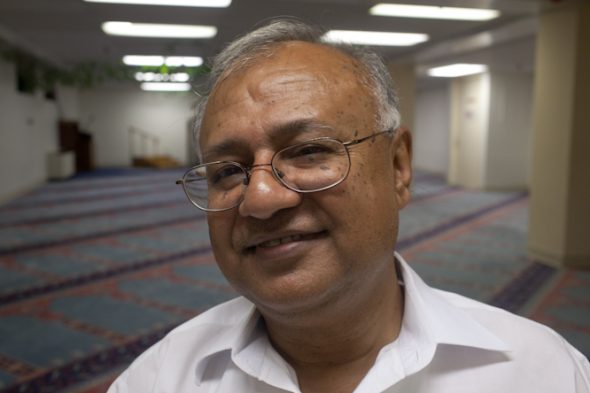
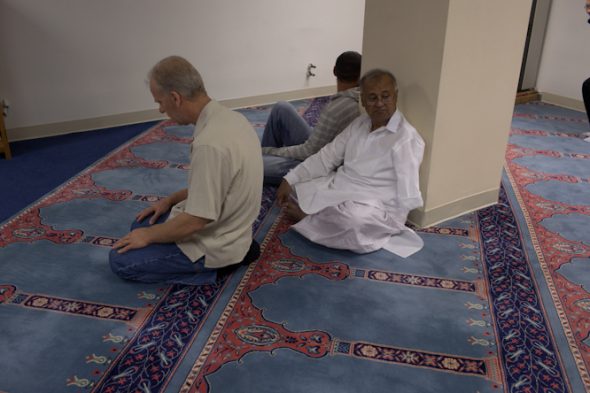
Dr. Mahboubul Hassan has one arm. A freak sports injury as a child forced his left arm to be amputated. He said it was God’s plan for something better in his life.
“Look at me, I’m the best racquetball player in this community,” he said with an earnest grin. “I’m also the best at table tennis. Just watch, after prayer, I will destroy everyone.”
He wasn’t kidding. Once prayer finished, a congregant gets up to unfold a ping-pong table stashed in another room. Mahboubul watches in silence as he patiently waits his turn. His moves are subtle but his results are deadly. He use slices each return with his paddle as the ball to spin on the table in spastic directions. He barely breaks a sweat as the other person frantically wails his arms in hopes to even make contact with the ball.
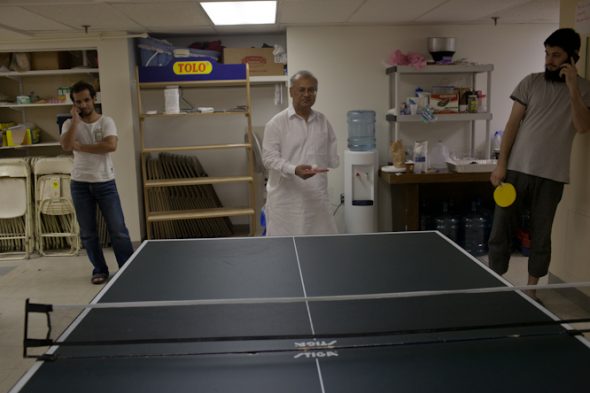
“Having one arm isn’t a problem,” Mahboubul said. “Whenever there is a hardship, Allah helps you make adjustments.” He grew up in Bangladesh and as a kid loved to play soccer. When talking about his childhood, he constantly repeated the phrase “I was not a good person.” I asked him why he thought so. “ I used to think I was tough, arrogant,” he said. “I went to a good privileged school and I used to rub it in people’s faces.” He also used to adamantly play soccer to the dismay of his mother. That’s when he injured his arm playing soccer in 9th grade.
“The cast that was done was on too tight,” he said. “My fingers started turning black.”
The tight cast cut off circulation in his fingers and soon enough traveled up and down his left arm. It was too late for doctors to correct the botched surgery and instead his arm was amputated. His left arm is now a stump hidden underneath a tucked in sleeve on his South Asian garb. He said he doesn’t see his amputated arm as God punishing him for his crass behavior as a kid, but rather a reminder of who he used to be – an arrogant and disobedient kid.
These days, he’s now a respected economics professor and one of the earliest pioneers of the Muslim community here in New Hampshire when he came here in the early 1980s.
“This is God’s way of dealing with things,” he said. “In God’s way, I’ve achieved quite a bit. I never look up at myself, instead I look down.” For the past 10 years or so, the Muslims in New Hampshire have prayed in rented out prayer spaces. The largest one is here in Manchester, a town where thousands of Muslims now live. The community is currently working on erecting the first building in the state designated for a mosque. Mahboubul is president of the mosque and I notice he’s popular among the congregation. He makes his way around the room making sure to greet everyone who is there.
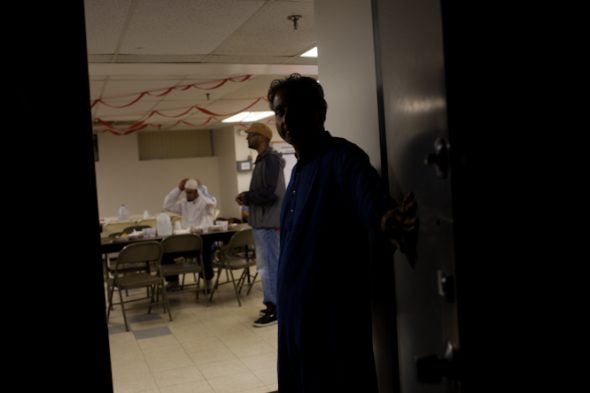
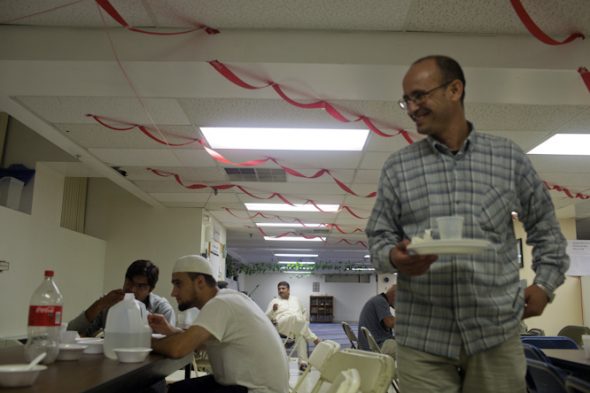
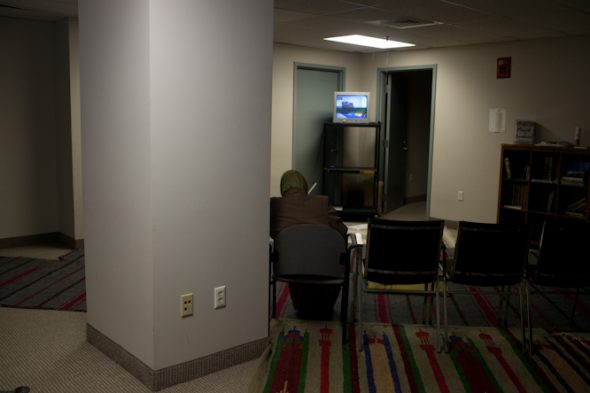
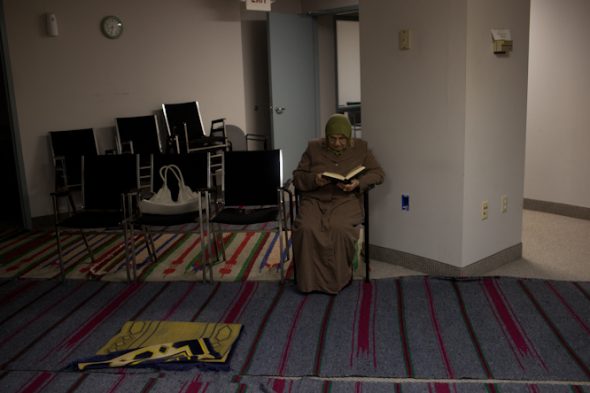
“I’m the president not because I was qualified, but I’m president because nobody wanted to take it,” he quipped.
After prayer, he places his hand on my shoulder and asks me to come with him.
“Come, you wanted to play ping pong,” he said. “No no, I just wanted to see you play,” I replied.
He stops two people from playing and asks them to hand me a paddle. Mahboubul’s kind personality goes beyond just being a nice guy. It’s hard to explain with words, but when you’re around him, you feel a genuine sense of love when you’re in his presence. He asks me what Bassam and I plan on doing for sahoor, the meal in the morning to start the fast.
“Oh, I think we’ll just grab some food at a grocery store or gas station,” I said. “No, you come here to the mosque at 3 a.m. I will come and I will bring you food.”
I would take him up on the offer but I know there’s no way Bassam will wake up that early. On this roadtrip, sometimes he’ll even fall asleep halfway into making sentences. It conjures up thoughts of Grandpa from The Simpsons in by brain. Another congregant challenges Mahboubul to table tennis. As we watch Mahboubul destroy him as expected, a Bosnian guy points to Mahboubul and talks about his tennis skills.
“Sometimes we joke he can beat anyone with one hand tied behind his back,” he said. “Hahaha, no really, I remember meeting him the first time, he asked me to play him table tennis. So I figured ‘Ok, this poor old guy, I’ll play with him and go easy on him. He ended up beating me and every single person in the room.”
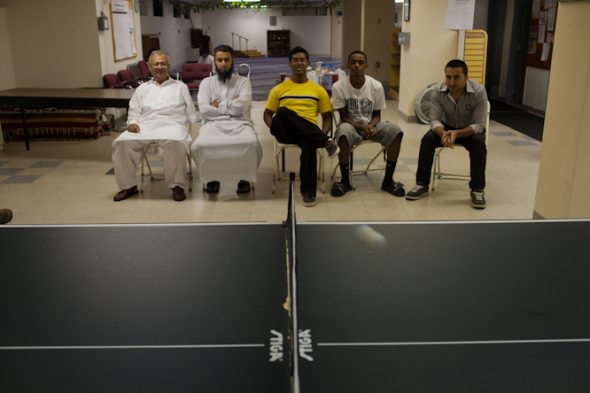
Category:
Tagged with:
Share it:
Comments Off on VIDEO: HiMY SYeD – GTAEid – Metro Toronto Convention Centre, South Hall
Eid al Fitr – HiMY SYeD – GTAEid – Metro Toronto Convention Centre, South Hall
Category:
Share it:
